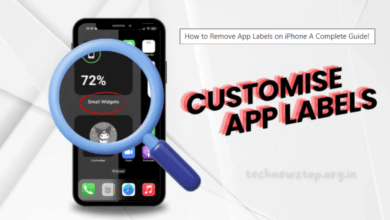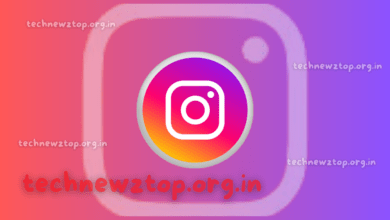Google Find Hub Gets Satellite Location-sharing Upgrade for Offline Safety

Staying connected in today’s fast-paced world has become more important than ever. But what happens when you travel to remote areas with no mobile signal or internet connection? To address this challenge, Google Find Hub has introduced a major satellite-powered upgrade. This new feature allows users to share their location even without mobile networks, making it a practical safety tool for travel, outdoor exploration, and emergency scenarios.
What is Google Find Hub?
Before diving into the latest upgrade, it’s important to understand what Google Find Hub actually is.
Google Find Hub is an advanced location-sharing platform that integrates with Google services like Maps and Android devices. Its primary purpose is to help people track, share, and stay connected with trusted contacts. Traditionally, the app required internet or mobile networks to function, but with the new satellite support, its usefulness is expanding far beyond traditional connectivity.
This enhancement marks a new milestone in digital communication, ensuring people remain safe and traceable even when technology fails in isolated regions.
Why the Satellite Upgrade Matters
Modern life often depends on constant connectivity. But there are situations where people may find themselves without mobile signal:
- Traveling in remote mountains or deserts
- Hiking, camping, or trekking in national parks
- International journeys through rural areas
- Emergencies during natural disasters when networks go down
In such cases, Google Find Hub’s satellite-based location-sharing could literally be a lifesaver. By enabling one-time pings through satellites, it ensures you can still share your location with trusted contacts, even when disconnected from the digital world.
How Google Find Hub Satellite Location-sharing Works
The new satellite feature has been designed with simplicity and safety in mind. Here’s a breakdown:
One-time Location Pings
Unlike continuous live tracking, Google Find Hub uses one-time pings. Each ping is similar to dropping a pin in Google Maps or WhatsApp.
15-minute Update Cycle
Users can send manual location updates every 15 minutes, ensuring they remain traceable while conserving satellite bandwidth.
Daily Usage Limit
To prevent overloading the system, Google will introduce a daily cap on pings. While the exact limit is not confirmed, this ensures a balance between accessibility and sustainability.
Sending vs. Receiving
While connected to satellites, users can send their location but cannot receive updates from others. This design prioritizes outgoing safety signals instead of constant two-way communication.
Privacy and Security in Google Find Hub
One of the strongest aspects of Google Find Hub is its privacy-first approach. Google has ensured that users retain complete control over their location-sharing settings.
Trusted Contacts Only
Only contacts you authorize will be able to see your updates.
Flexible Controls
Users can change, pause, or revoke access at any time.
Integration with Google Maps
Location-sharing settings will also be manageable through Google Maps, making it easier for users who are already familiar with Google’s navigation tools.
Data Transparency
Find Hub will display remaining pings for the day and the time of the next available update, ensuring users stay informed about their satellite usage.
Compatibility and Device Support
While this upgrade is groundbreaking, Google has not yet clarified:
- Which Android devices will support the satellite feature
- Whether additional subscription costs will be required
- How the feature will be integrated into future Pixel or partner devices
The lack of clarity suggests that Google may roll out this update gradually, beginning with flagship devices before expanding to a wider Android audience.
Google Find Hub vs. Satellite SOS
It’s important to understand that Google Find Hub’s satellite location-sharing is not a replacement for Android’s Satellite SOS service.
- Satellite SOS is dedicated to emergency situations and can connect users directly to emergency responders.
- Google Find Hub, on the other hand, is more about preventive safety—allowing friends and family to track your location for peace of mind.
In case of emergencies, users should first attempt regular calls. If that fails, Satellite SOS should be used. Find Hub complements this by offering offline location-sharing for routine safety.
Key Benefits of Google Find Hub Satellite Feature
- Enhanced Safety – Stay connected even in no-network zones.
- Peace of Mind for Families – Loved ones can track your location while you’re traveling or exploring remote areas.
- User Control – Full authority over who can see your location and when.
- Seamless Integration – Works smoothly with Google Maps and Android ecosystem.
- Emergency Preparedness – Adds another layer of offline communication.
Real-life Use Cases
To understand the real-world significance of this feature, let’s look at some examples:
Adventure Travelers
Hikers or trekkers in the Himalayas or the Grand Canyon can send updates every 15 minutes, allowing their families to track their progress.
Remote Workers
Professionals working in oil fields, research bases, or offshore areas can use Google Find Hub to stay connected without relying on unreliable mobile signals.
Disaster Scenarios
During natural disasters like earthquakes or floods, when mobile towers go down, this feature can help maintain communication lines for safety.
Global Impact of Satellite Location-sharing
The Google Find Hub satellite upgrade has global implications. With more people exploring off-grid destinations and depending on remote work, satellite-based tools are no longer optional—they are becoming essential.
In the future, this technology could expand to include:
- Integration with wearables (like smartwatches)
- Automated emergency check-ins
- More frequent pings without exhausting limits
- Partnerships with international satellite providers for global coverage
Also Read: Telegram Recent Update Introduces Public Post Search, Story Albums, and Developer Tools
Conclusion
The Google Find Hub satellite location-sharing upgrade is a powerful step toward safer, more connected living in an increasingly mobile world. By giving users the ability to share locations without internet or mobile networks, it ensures peace of mind in remote areas and emergencies.
With manual control, privacy protections, and satellite reliability, Google is bridging the gap between online and offline communication. While not a replacement for Satellite SOS, this feature adds an invaluable layer of security for modern users.
As more details unfold regarding supported devices and costs, one thing is certain-Google Find Hub will play a critical role in the future of travel safety and global connectivity.



